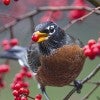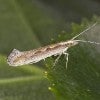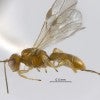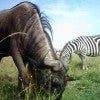People, papers and presentations for April 18, 2022
April 18, 2022
Fred Oswald, a professor of psychological sciences, is one of 27 experts recently appointed to the National Artificial Intelligence Advisory Committee, which will advise President Joe Biden and the National Artificial Intelligence Initiative Office.
Lost birds and mammals spell doom for some plants
January 12, 2022
In one of the first studies of its kind, researchers have gauged how biodiversity loss of birds and mammals will impact plants’ chances of adapting to human-induced climate warming.
Crop-eating moths will flourish as climate warms
September 13, 2021
Climate change in this century will allow one of the world's costliest agricultural pests, the diamondback moth, to both thrive year-round and rapidly evolve resistance to pesticides in large parts of the United States, Europe and China where it previously died each winter, according to a study by U.S. and Chinese researchers.
Does selfishness evolve? Ask a cannibal
March 25, 2021
Biologists have used one of nature's most prolific cannibals to show how social structure affects the evolution of selfish behavior. Researchers showed they could drive the evolution of less selfish behavior in Indian meal moths with habitat changes that forced larval caterpillars to interact more often with siblings.
Corals may need their predators' poop
March 23, 2021
Fish that dine on corals may pay it forward with poop. Rice University marine biologists found high concentrations of living symbiotic algae in the feces of coral predators on reefs in Mo'orea, French Polynesia.
Camera traps reveal newly discovered biodiversity relationship
March 3, 2021
In one of the first studies of its kind, an analysis of camera-trap data from 15 wildlife preserves in tropical rainforests revealed a previously unknown relationship between the biodiversity of mammals and the forests in which they live.
Where lions operate, grazers congregate … provided food is great
August 17, 2020
Meals are typically family affairs for zebras, gazelles, cape buffalo and other grazing species in the African Serengeti, but in one of the first studies of its kind, ecologists have found grazing species can be more willing to share meals in areas frequented by lions.










